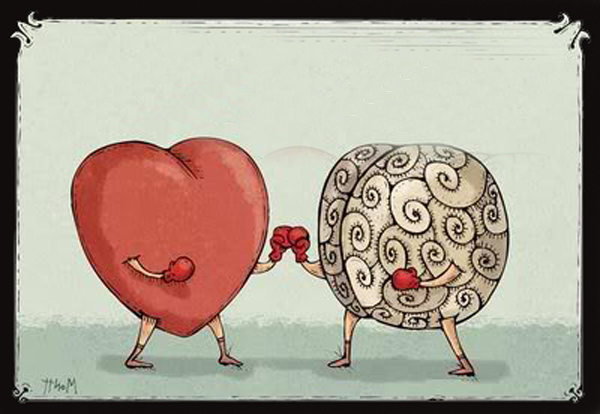
To stay or to leave?..
How many of us had relationships where this question has never been raised at least hypothetically? We either ask it to ourselves or worry that it may be a concern of our partner. In either case thinking about separation brings discomfort, anxiety, uncertainty, guilt, fears, frustration, etc.
In some of my trainings I conduct a little exercise. I write ‘separation’ in the middle of a flip chart and ask people to write their association with this word on a post-it note and stick it to the flip chart. No surprise, 95% of the associations are negative. We like to have and we don’t like to let go.
To help you with this struggle, I suggest a different view on separation. In the physical world we live in separation is an inescapable reality. “In the world nothing can be said to be certain except death and taxes.” once said Benjamin Franklin. So why does the most certain thing in the world bring us so much anxiety and uncertainty?
Separation is a basis of our life’s cycle. As we grow up we separate from our parents to live our own lives and create our own families. We join and separate a lot of educational institutions, groups of friends, clubs, jobs, locations, etc. Later on in life we separate from our own children when they leave home, from our older family members who pass away and so on until our own death.
So what is the idea behind the separation? A friend of mine, Olivia Bareham, who is a specialist in death and dying said, “We only love and enjoy something because we know that one day it will no longer be there. That’s why we enjoy fresh flowers and don’t enjoy fake ones.” Separation, or knowing that one day things will come to their end, changes our perspective, makes us improve, change, do things better, value what we have, enjoy the relationship with another person. Separation is healthy, otherwise our lives will be full of old things, people and situations. Every separation gives us back a part of ourselves and reminds us of our own value, identity and purpose. It helps us break the old dysfunctional patterns and ties, face reality and change it for the better.
So how can we embrace the idea of separation and include it in our life’s journey? First of all we need to realize that the only person who will stay with us till the very end is ourselves. Other things, people or situations are external to us and can change or part from us at any time. Thus the only thing worth investing into is ourselves.
When we create clear and healthy boundaries with the external environment, cutting all the dependencies and assuming ownership and leadership of our own lives, we become the managers of ourselves always choosing what is better for us. Some people call it selfishness, but if you think about it, it’s the opposite. To live the way you want is not selfish, it is selfish to expect others to think and live the way you want.
In the ideal situation our parents bring us to our teen years with enough support, leadership, care and love. This allows us to separate from them mentally and physically and become self-sufficient. This first significant and important separation in our lives sets the tone for the way we approach and handle ourselves in relationships, personal and professional, and in other situations in our lives. If this separation is compromised, the instinct of childhood codependency stays active which prevents the person from creating a safe and trustful connection with the world.
You may guess what happens next. People grow in age and size, but keep relying on external sources of leadership, guidance, love, attention and validation. This condition is called Bosurgi Syndrome. It creates vulnerability, hence anxiety, fears and make people feel unsafe. In this context any separation is considered by the mind as a threat to the emotional and physical safety of the person creating a lot of pain and discomfort. It also keeps the person in the position of a receiver, e.g. I need to receive attention, validation, love and guidance from others in order to feel safe and good about myself. Again, separating from the sources of these emotions becomes very stressful. A self-sufficient person who leads and loves themselves, becomes a giver and views separations not as a personal horror, but as a natural process of life change. A giver doesn’t see in their partner a provider of emotional or physical comfort, but makes a choice based on the qualities supporting a strong and trustful connection.
If an unsatisfying relationship is part of your life and your mind is full of doubts and dilemmas, remember the first important separation in your life, separation from your parents, and think about the nature of your connection with them in the present. If you find any traces of trying to prove yourself to others, feeling not good enough, guilt, anger, control, etc. it may mean that it’s time to work through those unproductive feelings and dependencies, and set yourself free to make the choices out of your personal confidence, peace and independence.
To learn more about adult codependency, the Bosurgi Syndrome, it’s consequences, treatment and prevention, visit the website. You can also ask your questions on our blog.



